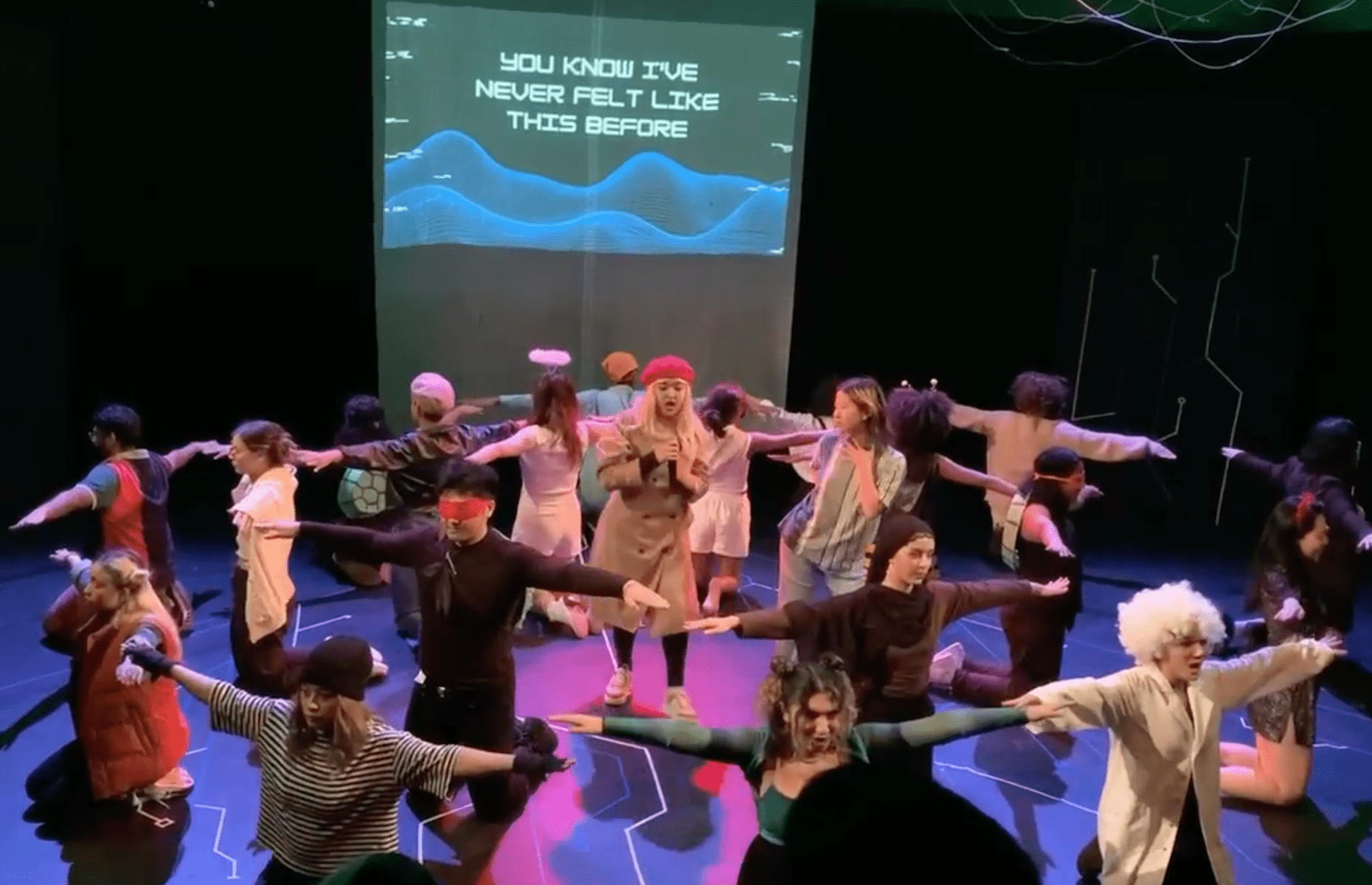This year, Directors Marie-Jo Orbase and Junnade Ali’s POC Revue: Futurism invited all people of colour to “imagine, reclaim, and reinvent the future”. In our current political climate, such an invitation can easily seem loaded; a discourse-starter for imagining a better world. But this show reminds us that this need not always be the case; that there is value in the whimsical and the weird, in the comical and the coarse.
We especially loved the decision to feature Yamano Satoko’s insanely catchy Doraemon No Uta that transported everyone back to their carefree selves during the intermission. Seemingly a simple tribute, this gesture encapsulated one of the charms of Futurism, namely, portraying a distinctively POC take on Y2K aesthetics.
Another that raised eyebrows to the high heavens was a Freudian interpretation of many foreign soap operas when Marianna (Isabelle Laxamana) and Jose (William W Xu) stirred scandal in an Oedipal menage et trois that ended in one of the parties, Jose’s meddling mom (Hana Rossi), exiting the stage. For those reared in the endlessly predictable cycle of Asian romcom, the act succeeded not only in eliciting laughter but also provided a comforting dose of nostalgia to onlookers.
Danny Cabubas and Laxamana’s performance in a sketch about ‘the designated Filipino friend’ was a particular highlight for me (Carmeli). From their tennis skirt and basketball jersey costuming to the references to Blacktown, ukulele obsessions, basketball and break dancing, I easily recognised at least ten people from my childhood in Cabubas and Laxamana’s characters. Sometimes all it takes to amuse is to simply hold up a mirror to one’s experiences, and on this front the show delivered (Khanh can attest to the number of times my hand flew to my mouth to stifle my laughter).
The show also featured some video sketches, which added a welcome change of pace between acts, including an ASMR video parody in Fisher library from Cabubas and Rossi. Consisting of only a thumbnail and a series of audio samples in the same format as ASMR sound-slice videos, the sketch plays on a cornerstone experience for many of its audience members in a clever format.
Credit must also be given to Teresa Ho’s flexible array of costumes, featuring everything from Ninja Turtles to bees and two bedevilled angels that took the punchlines to the next level. Similarly, Bianca Yeung and Ping-hui Ho’s choreography must be commended, with dancers transferring their infectious bursts of energy to an eager audience in spite of their relatively simple movements.
We must also commend the show for weaving in bits of social commentary, particularly on the pressing (and unfortunately, always relevant) issues of identity politics, intergenerational trauma within immigrant families, and interracial relationship dynamics that fetishise POC. However, we would’ve liked to see more coherence in such messages and the political position underlying them — at times, the tonal and thematic shift between various sketches seemed jarring.
Instead, the greatest strength of the show for us lay in those moments of familiarity; in the showcasing of not-so-uncommon (though they may seem so, in spaces like USyd) experiences for POC, in the common language of community and hospitality and fun that we all seem to share.
POC Revue 3022 was in many ways an escape, but it was also a homecoming. As first-time POC Revue reviewers who often find ourselves at odds with a prevailing culture of whiteness in the University, we were grateful for the opportunity to time travel to the future and simultaneously return to the comfort of a boisterous, yet homely environment so familiar to our community upbringings. Overall, Orbase, Ali, Ange Tran and Madhullikaa Singh should be proud for putting together what was a highly entertaining performance that adeptly weaved well-timed punchlines, nostalgia, youthful exuberance and an incredibly energetic cast.





